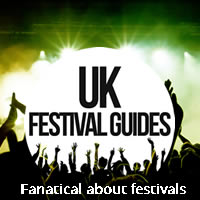Manchester Folk Festival 2026
From 19th to 21st March 2026, Manchester Folk Festival returns to the Northern Quarter for three days of folk music in historic venues across the city. Enjoy a diverse programme of acoustic, roots, and traditional performances in an urban setting.
Music
The festival showcases a range of folk styles including traditional English folk, contemporary folk-rock, and Celtic tunes. Expect performances by established artists and emerging local musicians in venues such as Band on the Wall, New Century Hall, and Hallé St. Peter’s.
Venues & Atmosphere
Events take place in historic concert halls, cosy pubs, and intimate clubs close together in the Northern Quarter. A wristband allows flexible access between venues, with additional free activities like Morris dancing and morning pub sessions contributing to a relaxed, community-driven vibe.
Community
Manchester Folk Festival offers a welcoming atmosphere where audiences connect through singing, dancing, and sharing stories. It’s a celebration of the city’s vibrant folk scene, perfect for both longtime fans and newcomers.
Manchester is very well connected by road, rail and air. If you’re flying in, Manchester Airport (one of the UK’s busiest) lies just south of the city and handles flights from across Europe and beyond. From the airport you can reach the city centre in about 20 minutes by train (direct trains run from the airport to Manchester Piccadilly) or by Metrolink tram on the new airport line. If you prefer train travel, Manchester Piccadilly station is the main hub – it offers very frequent services, including direct high-speed trains to London (around 2 hours to Euston) and regular connections to other major cities. For budget travel, coach services such as National Express and Megabus also run to Manchester, usually arriving at stops near Piccadilly Station or the central coach station from London, Birmingham, Glasgow and beyond.
Once you arrive in Manchester, getting around is easy. The city centre is compact and pedestrian-friendly, so many festival venues are within walking distance of one another. The Northern Quarter itself is just a short stroll from Piccadilly Gardens or St. Peter’s Square. Manchester’s Metrolink tram network covers the city extensively, and multiple tram stops are close to festival sites. Local buses (Stagecoach and First) also crisscross the city frequently. There’s even a free Metroshuttle bus that loops around the centre, linking main areas like Piccadilly and Deansgate. Between walking, trams and buses, you can plan convenient routes to navigate the city day and night. Licensed taxis and ride-hailing apps (Uber, Bolt, etc.) are also readily available if needed.
If you’re coming by car, Manchester sits at the junction of several major motorways (the M60 ring road, linking to the M62 east-west and the M56 towards the airport). The city is well signposted but parking in central Manchester is limited and can be expensive. Many drivers find it easier to park outside the core and use public transport to reach downtown – for example, the Park & Ride trams from suburbs like the Airport or Bury. There are multi-storey car parks in the centre (at locations like Oxford Road and Deansgate), but they may fill up on busy weekends. As for accommodations, Manchester offers options for every budget. Many visitors stay near Piccadilly Station or Oxford Road, where hotels and hostels are abundant and transit access is excellent. The Northern Quarter itself has boutique lodgings, B&Bs and Airbnb rentals if you want to be steps away from the venues. Wherever you stay, it’s wise to book early, as rooms can sell out. Choosing lodging along a tram or train line will make your festival weekend smoother and more convenient.
Manchester
 Manchester Folk Festival
Manchester Folk Festival

